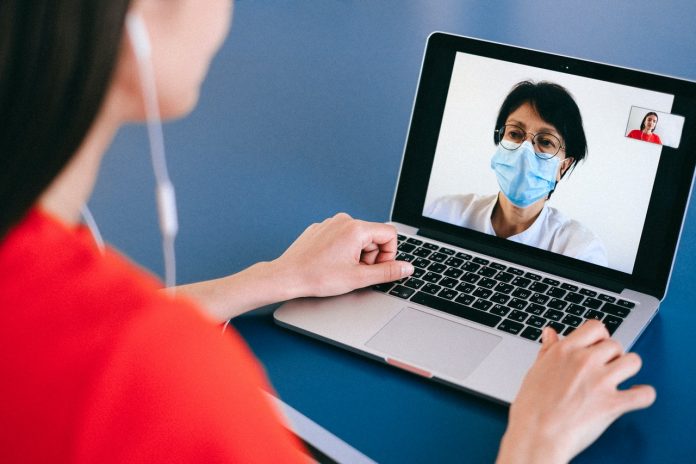The healthcare industry is finding its way to engage with its patients with HIPAA Compliant.
With everyone dependent on the online platform, industries such as healthcare are finding innovative ways to deliver digital healthcare services to their patients.
Social media has become one of their many choices. Social media is huge and if you observe closely, it is one of the highest apps everyone uses each day for more than an hour.
But do you think this is the right decision?
While social media could be the best marketing place for other businesses, for the healthcare sector this is one barrier that won’t let it happen, ‘Hipaa compliance.’ So can Hipaa compliance and social media blend?
This blog answers this query with detailed insights.
Does Social Media & HIPAA-Compliance blend? Let’s break both topics down. Social media is a great hub for engagement but is it HIPAA compliant chat API? All the chat and video conferencing conducted via this platform is it HIPAA-Compliance? Before answering the question, let’s understand what HIPAA-Compliance really is?
HIPAA-Compliance is the health insurance portability and accountability act of 1996. As per the law, the confidential information of users needs to be protected. In healthcare, there are multiple confidential information being shared such as medical history, contact details, medicines prescribed, and more.
If shared or leaked to unauthorized users or platforms, it will go against the law. The whole agenda of HIPAA-Compliance is to help patients keep their health insurance, protect their data and reduce administrative costs for healthcare services.
Hence to ensure that data is being protected, healthcare needs to sign a business associate agreement with whoever they partner with. Now that you are well aware of social media, do you think this partnership will take place?
The simple answer is no. But healthcare professionals can still engage with their patients but they need to be cautious. Any information related to PHI (protected health insurance) needs to be avoided.
How You Can Conduct this Action is Explained in Our Next Category
7 HIPAA-Compliant Best Practices To Follow While Using Social Media
- Identify which are the information that relates to PHI. Ensure none of that information is stated in the engagements.
- Even small information such as contact details can result in PHI details. Refrain from using them and be cautious with the engagements you conduct.
- Ensure that no mentions are stated if a patient received or will receive any medical treatments.
- Refrain from sharing or stating any medical cases.
- Refrain from calling the patient’s real name or their medical condition. Use a common phrase for all.
- Eliminate prescribing any kind of medical treatment.
- Never engage with a patient in public or on a private basis via messages. If necessary, use only a HIPAA-Compliant email to engage with patients.
So What Can You Engage with Your Patients via Social Media?
This list can help you:
- Share information about COVID-19 and how they can stay away from it
- Share news or updates about your practice
- Educate your patients about healthcare topics
- Share your support for local partners or businesses
- Exhibit any events that your practice is hosting
Are There Any Social Media Handle That is HIPAA-Compliant?
1. Facebook with HIPAA Compliant
Facebook has been the oldest social media handle of today. With regular updates, it is meeting the current needs of users today. However, it isn’t HIPAA-Compliant since they won’t sign the agreement listed above. However to engage securely on Facebook, refrain from sharing or using anything related to PHI.
2. Instagram with HIPAA Security
Instagram is the highest social media app that users spend more time on. Recently it was acquired by Facebook and has become the hub for businesses to market well to their customers. Like the above, Instagram is not HIPAA-Complaint. However, secure engagements can still be conducted without using PHI.
3. Twitter with Hipaa Compatibility
Twitter is another popular social media handle. The popularity of hashtags always comes from this social media handle. While Twitter can be used to educate your patients about multiple healthcare topics, however when it comes to engagement, it is not HIPAA-Compliant. The same applies here that PHI information shouldn’t be shared during engagements.
4. Linkedin with Hipaa Compliant Privacy
LinkedIn has become a great platform for healthcare professionals to create their profiles and build their communities. LinkedIn engagements are great but unfortunately, even this platform is not HIPAA-Compliant. Hence to engage better, refrain from engaging about PHI.
Conclusion
Social media is great but when it comes to securing confidential information especially PHIs, healthcare professionals need to find alternate solutions.
Did you know that apart from social media, there could be other secure ways to engage with your patients?
HIPAA-Compliant Chat Software can Help You.
With HIPAA-compliant chat APIs, you can build a communication app that can be used to engage with your patients better. Such HIPAA-compliant APIs offer high-end security and efficient features that work on enhancing your chat experience better.
With these APIs, you can easily build a HIPAA-compliant video chat platform and even a HIPAA-compliant video conferencing and chat platform.
Why don’t you get started with them right now?





